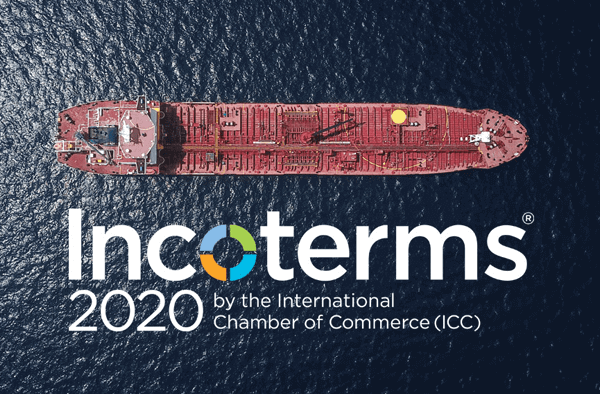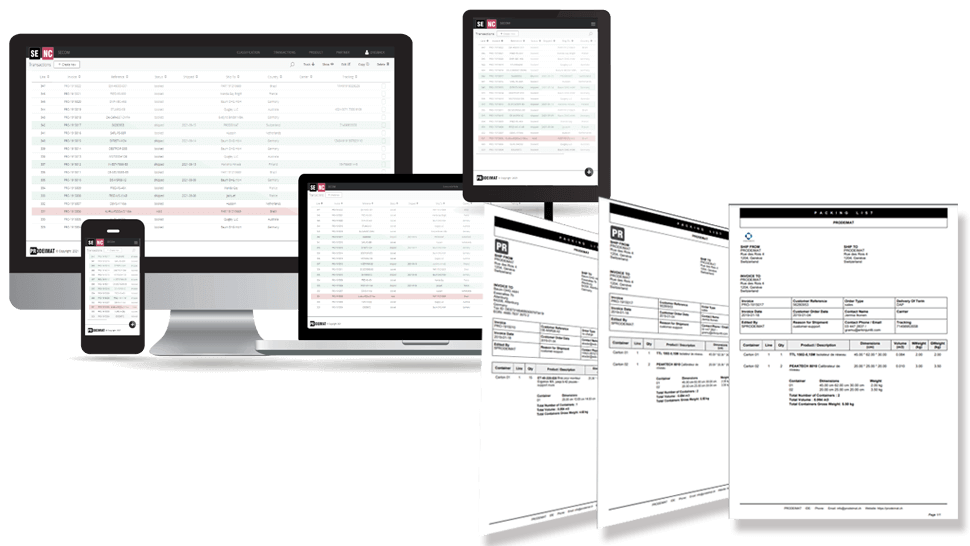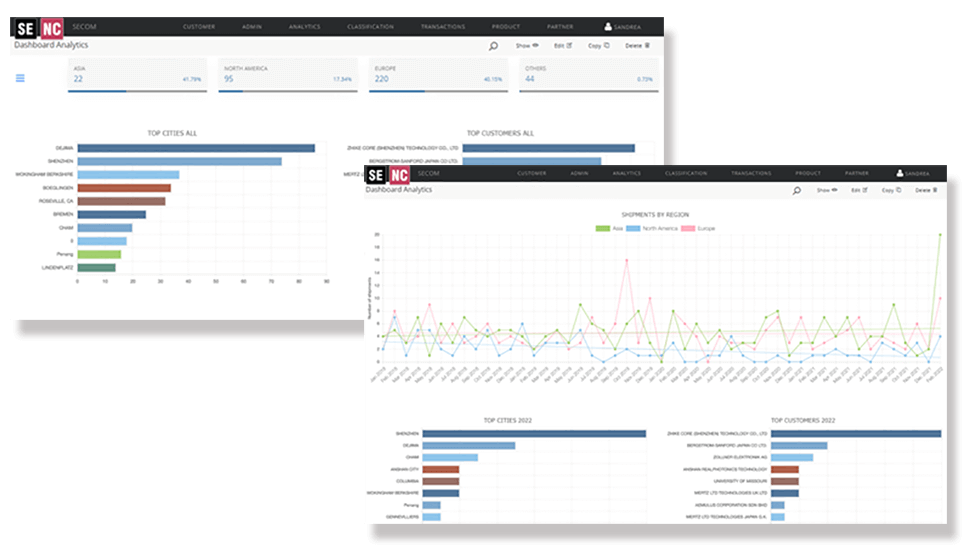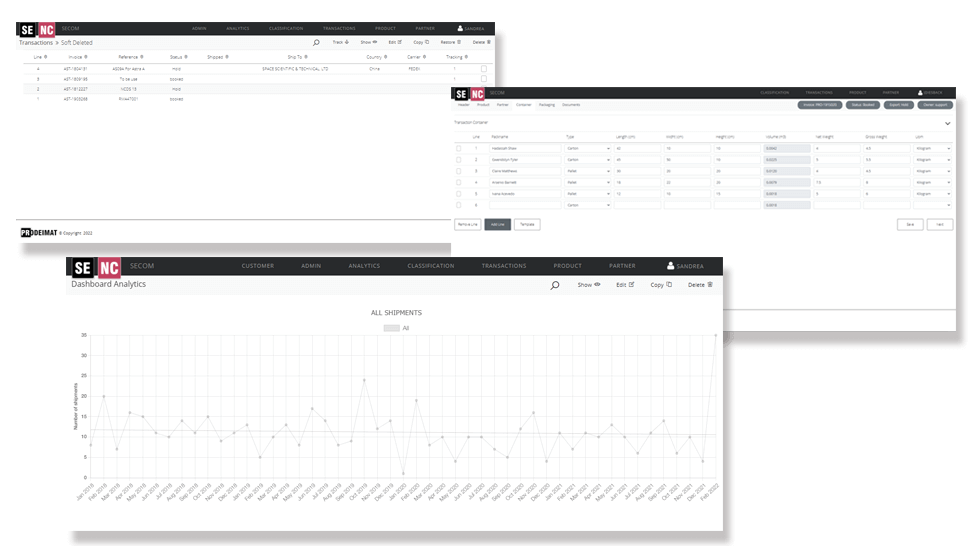What are incoterms and what is their purpose?
Not everyone knows what Incoterms are. It often happens that you have everything ready to open your business to the world, you have already investigated the suppliers that have the most convenient prices and you think you are ready, but not...

Not everyone knows what Incoterms are. It often happens that you have everything ready to open your business to the world, you have already investigated the suppliers that have the most convenient prices and you think you are ready, but you are not.
You are missing a very important piece of information before you start working. You have to know what are the International Terms of Trade, Incoterms, because it depends on it that the relationships with your strategic partners are lasting in time. You know what they say: Clear accounts, long-lasting friendships.
Where International Trade Terms come from?
The International Chamber of Commerce of Paris (ICC or International Chamber of Commerce, in English) provided a list of terms or expectations of global trade, since 1936, so that entrepreneurs around the world know what their rights and duties are when doing business between countries.
Thus, the Incoterms (International Commercial Terms) were born.
Then...
Technically, these are agreements that both parties to a business deal agree to respect in order to determine responsibilities between the importer (the buyer) and the exporter (the seller).
For example, imagine that your merchandise is lost or arrives in bad condition to the country of destination because of a bad management of the ship that your importer hired in the country that is buying from you... Who will assume the responsibility?
Who will assume the responsibility? If the case reaches the press, will you be blamed? Could such an incident ruin your reputation in the international market?
Well, that kind of misunderstanding is precisely what Incoterms would prevent, if you knew about them.
Now, how many Incoterms are there?
If you are the leader of a company that is just starting out in the world of international trade, you cannot afford to lose credibility in your company's image.
Especially in European or Anglo-Saxon markets that prioritize quality but above all expect you to deliver what you promise.
That is why we are going to know what the acronyms of the Incoterms mean, which by the way change every 10 years, the list you will see below belongs to the last modification that occurred in January 2020.
These are the terms, there are only eleven:
| 1.- | EXW | EX Works |
| 2.- | FAS | Free AlongSide ship |
| 3.- | FOB | Free On Board |
| 4.- | FCA | Free Carrier |
| 5.- | CPT | Carriage Paid To |
| 6.- | CIP | Carriage and Insurance Paid to |
| 7.- | CFR | Cost and Freight |
| 8.- | CIF | Cost, Insurance, Freight |
| 9.- | DAP | Delivered at Place |
| 10.- | DPU* | Delivered at Place Unloaded |
| 11.- | DDP | Delivered Duty Paid |
*This term has changed, it was DAT.
So, how to use them?
It is important to know what Incoterms exist, what their meanings are and to have them agreed in advance with your partners. If you learn them, you will know what is expected of you as an importer or what you expect from your supplier.
Below we will summarize them, remember that the groups in which the Incoterms are classified with letters of the alphabet, according to the initials that have the acronyms:
-
EXW, which stands for "In Works", belongs to Group E (delivery at departure) and refers to when the exporter delivers the goods to the importer at his facilities. Should any unforeseen event occur, the importer is responsible. That is, the buyer.
-
The terms FOB, FAS, FCA which mean: "Free on Board", "Free alongside the Vessel" and "Free Carrier", respectively, belong to group F (indirect delivery), in these cases the exporter, the one who sells, puts the goods in management of the logistics of a transport company.
This company in question is hired by the importer, the buyer, who is also responsible for its hiring. Thus, the company that is importing the goods is not responsible for the fees of the company that transports its product.
-
Also, the terms CIP, CIF, CPT, CFR which mean: "Carriage and Insurance Paid To", "Cost, Insurance and Freight", "Carriage Paid To" and "Cost and Freight" respectively; belong to group C (indirect delivery). Here the exporter will be responsible for paying the company that transports the goods, i.e. he assumes that responsibility.
But this does not mean that he will pay for the damage or loss of the product on the way to its destination.
In this kind of agreements neither the importer nor the exporter assumes the cost of this kind of inconvenience, it would become an additional cost if such a problem occurs.
In the case of Incoterm CIF, which is one of the most used, a precision is made in this 2020 update, that the exporting party will contract an insurance, which has to cover until the merchandise arrives at the port of destination.
-
To conclude, the terms DAP, DAT (Now *DPU), DDP which mean: "Delivered at point of destination", "Unloaded at agreed place of destination "and "Delivered Duty Paid" respectively; obviously belong to group D (direct delivery). These Incoterms mean that exporters assume the costs and risks of moving the goods until they reach their agreed destination.
From that moment on, the goods become the responsibility of the importing company.
Remember that these Incoterms are adapted, for example, details about the destination location should be added to each term, such as: "FOB Beijing China".
So what could go wrong?
When making deals of this type, trust and good faith between the two parties are required. It is never too much to verify the company that you are contracting and whether or not it is an international one. These Incoterms only serve for legal terms when it comes to this kind of negotiations.
If you have any doubts about how to create export documents such as: commercial invoices, packing lists, etc. do not hesitate to subscribe and contact us. We will be happy to answer any questions you may have and advise you on whatever you may need.



